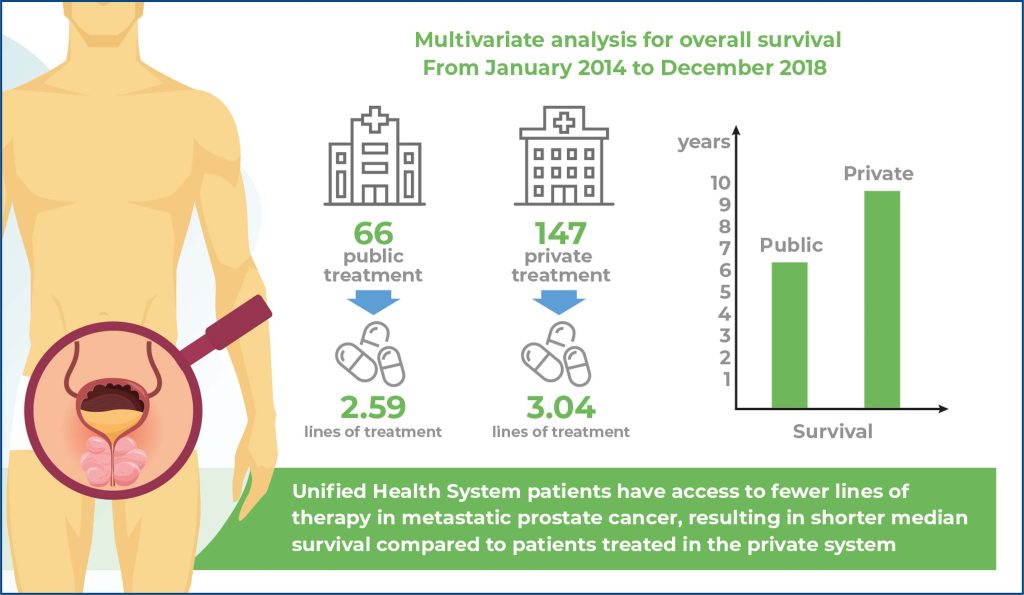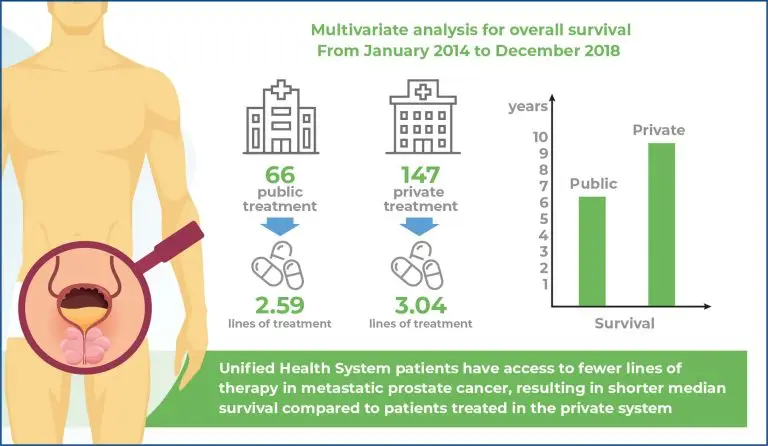einstein (São Paulo). 22/abr/2025;23:eAO0851.
Socioeconomic inequities in prostate cancer care: private versus public treatment settings pose a significant impact on overall survival
DOI: 10.31744/einstein_journal/2025AO0851
Highlights
■ Men with metastatic prostate cancer in the public system have access to fewer treatment lines.
■ Survival in the public system was 3 years shorter than that in the private setting (78 versus 115 months).
ABSTRACT
Objective:
To evaluate the impact of assistance from public and private health systems on the overall survival of patients with metastatic prostate cancer.
Methods:
A total of 213 patients with metastatic prostate cancer treated at the A.C. Camargo Cancer Center, either in the Unified Health System or a private system, from January 2014 to December 2018 were analyzed. Multivariate analysis of overall survival was performed to adjust for the type of health assistance and other clinical prognostic factors.
Results:
Of 213 included patients, 147 (69%) were from the private system and 66 (31%) were from the Unified Health System. There was a significant difference in the median age at diagnosis between the systems (63.4 years for patients in the private system versus 67.2 years for patients in the Unified Health System, p=0.027). No significant differences in performance status were observed between the groups (p=0.695). Patients treated in the public system had access to fewer treatment lines (2.59 lines in the public system versus 3.04 lines in the private system, p=0.024). Our data revealed a longer median survival for patients with private health care (115 months for patients with private health care versus 78 months for patients in the Unified Health System, p=0.009). Multivariate analysis revealed that patients in the public system had a 66% higher risk of death than those in the private system.
Conclusion:
Our data demonstrate that patients in the Unified Health System have access to fewer lines of therapy for metastatic prostate cancer, resulting in shorter median survival than patients treated in the private system.
[…]
178



